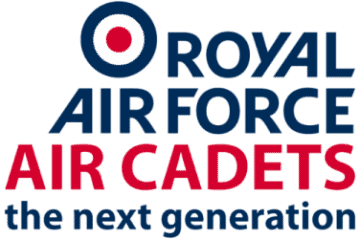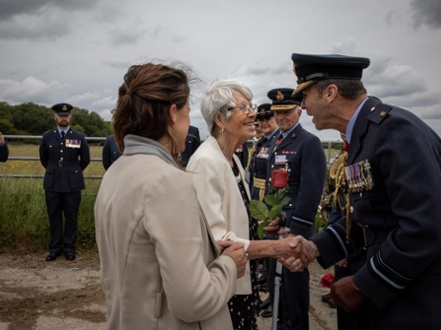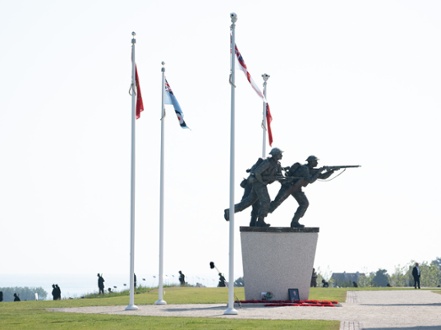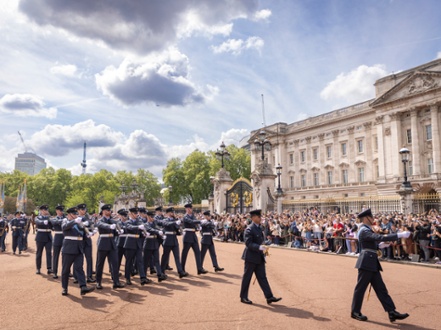On 26th June 2024, the Royal Auxiliary Air Force Foundation held a Centenary Service at the National Memorial Arboretum commemorating the founding of the Royal Auxiliary Air Force in 1924.

Over 100 attendees, including serving and retired members of the Royal Auxiliary Air Force (RAuxAF) and civilians who have links with the Force, witnessed the parading of The Sovereign’s Colour. The Service was held at the Royal Auxiliary Air Force Memorial, and the Reverend Squadron Leader Harrison officiated.
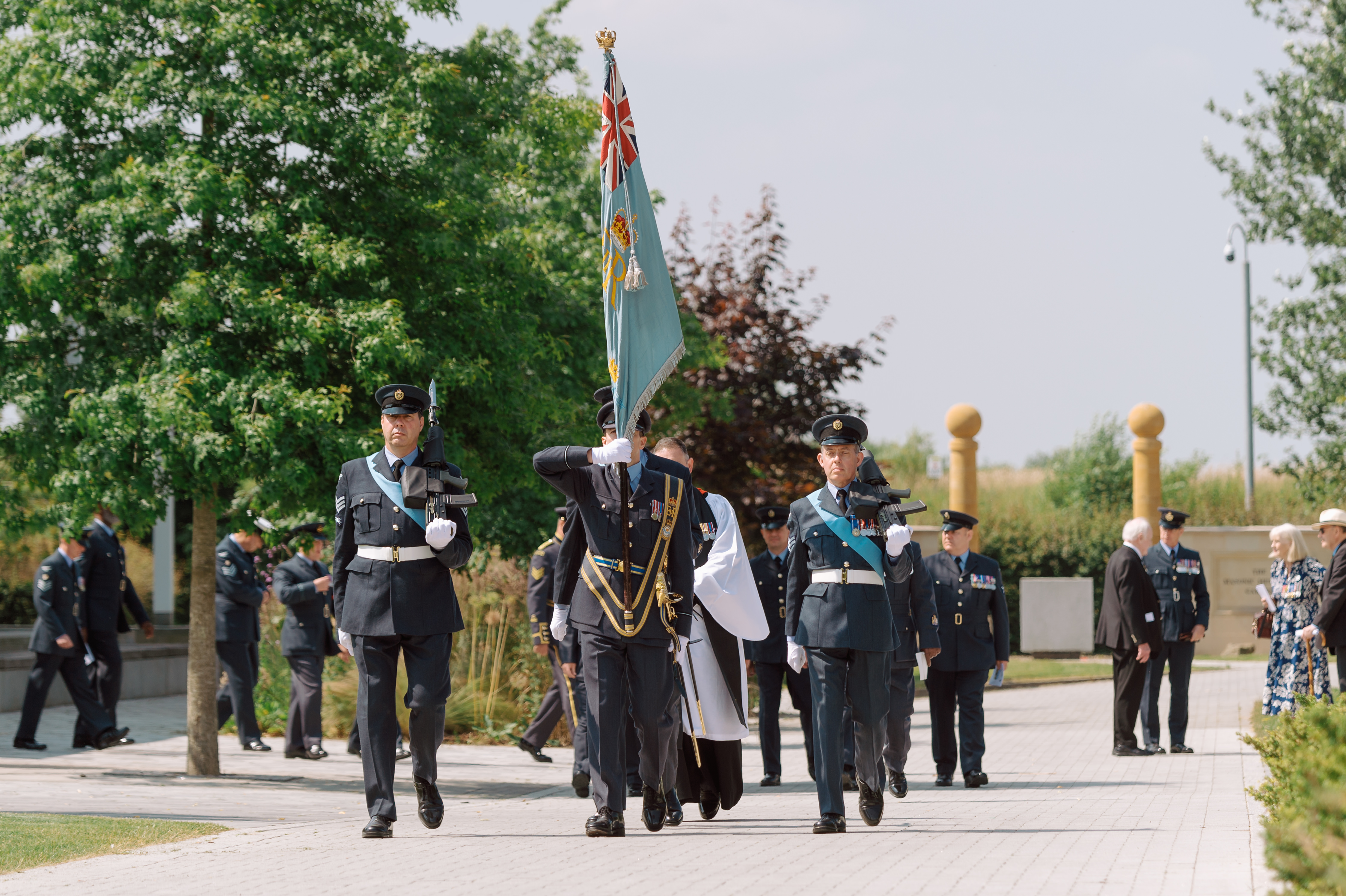
The Service began by remembering the 1,200 members of the Force who have died whilst on duty or as a consequence of being on duty.
This was followed by the laying of Memorial Stones for 6 former RAuxAF members, including four Battle of Britain pilots.

A female musician (AS1 Anastasia Arnold) who was killed in a motor-cycle accident, Honorary Air Commodore (Lord Selkirk) who was a distinguished politician and author, and four Battle of Britain pilots - Group Captain George Denholm, Wing Commander Alastair Grant, Flight Lieutenant Carl Davis and Squadron Leader Archie McKellar. Carl Davis was killed during the Battle and Archie McKellar very shortly after.
The Service concluded with the dedication of a Plinth honouring all who have served in the Royal Auxiliary Air Force throughout its 100-year history.
“Since its formation in 1924, the men and women of the Royal Auxiliary Air Force have vindicated Lord Trenchard’s vision of having an elite corps of civilians who could support the Royal Air Force in both peace and war. Our Service here today recognises the vital contribution they have made over the past century and pays tribute not only to those who have lost their lives whilst on duty but also to all who have served in the Force throughout its distinguished history. We must never forget them.”
Group Captain (Retd) Richard Mighall
Chairman of the RAuxAF Foundation
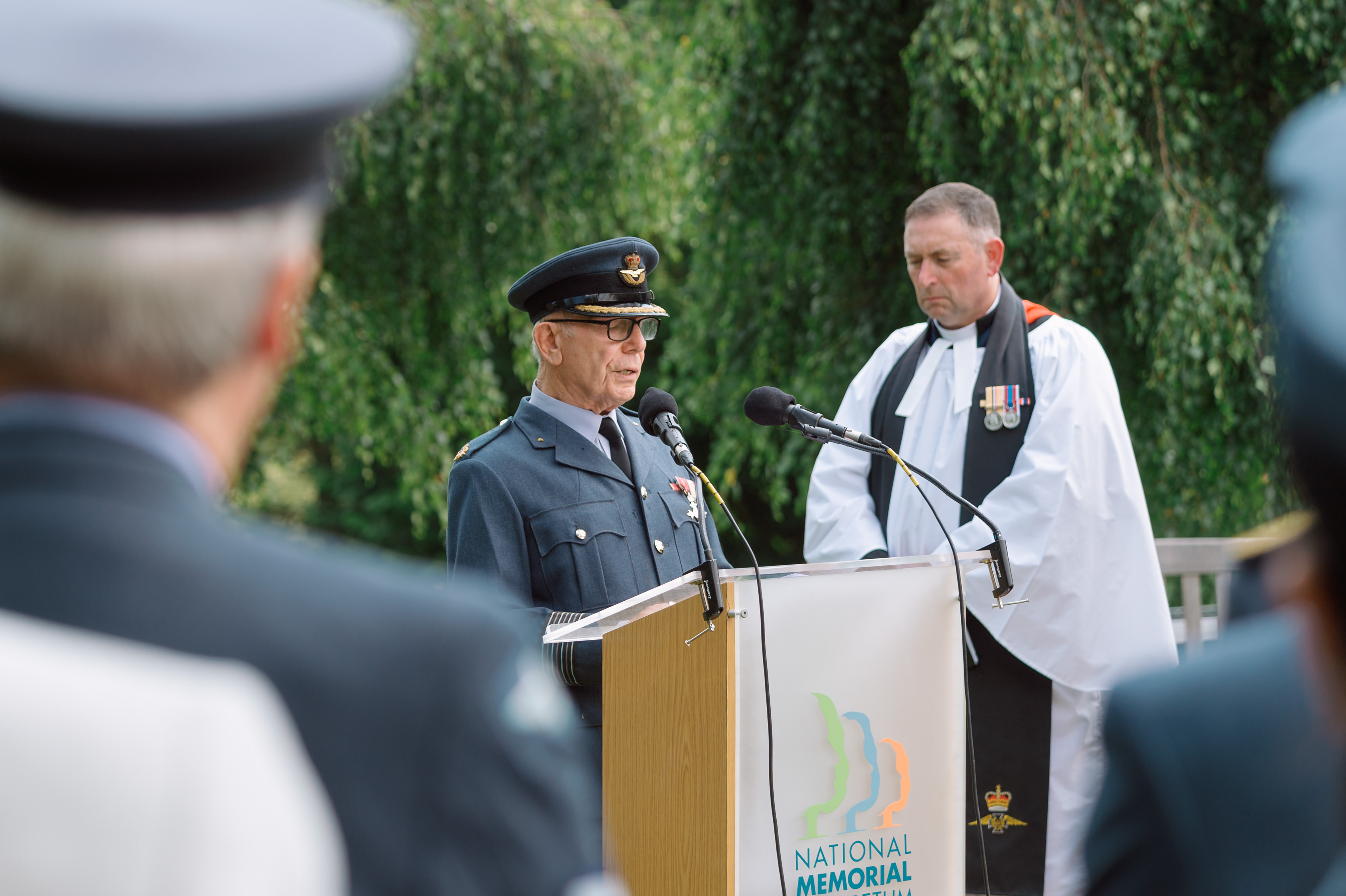
The 6 individuals commemorated with Memorial Stones were:
AS1 Anastasia Arnold
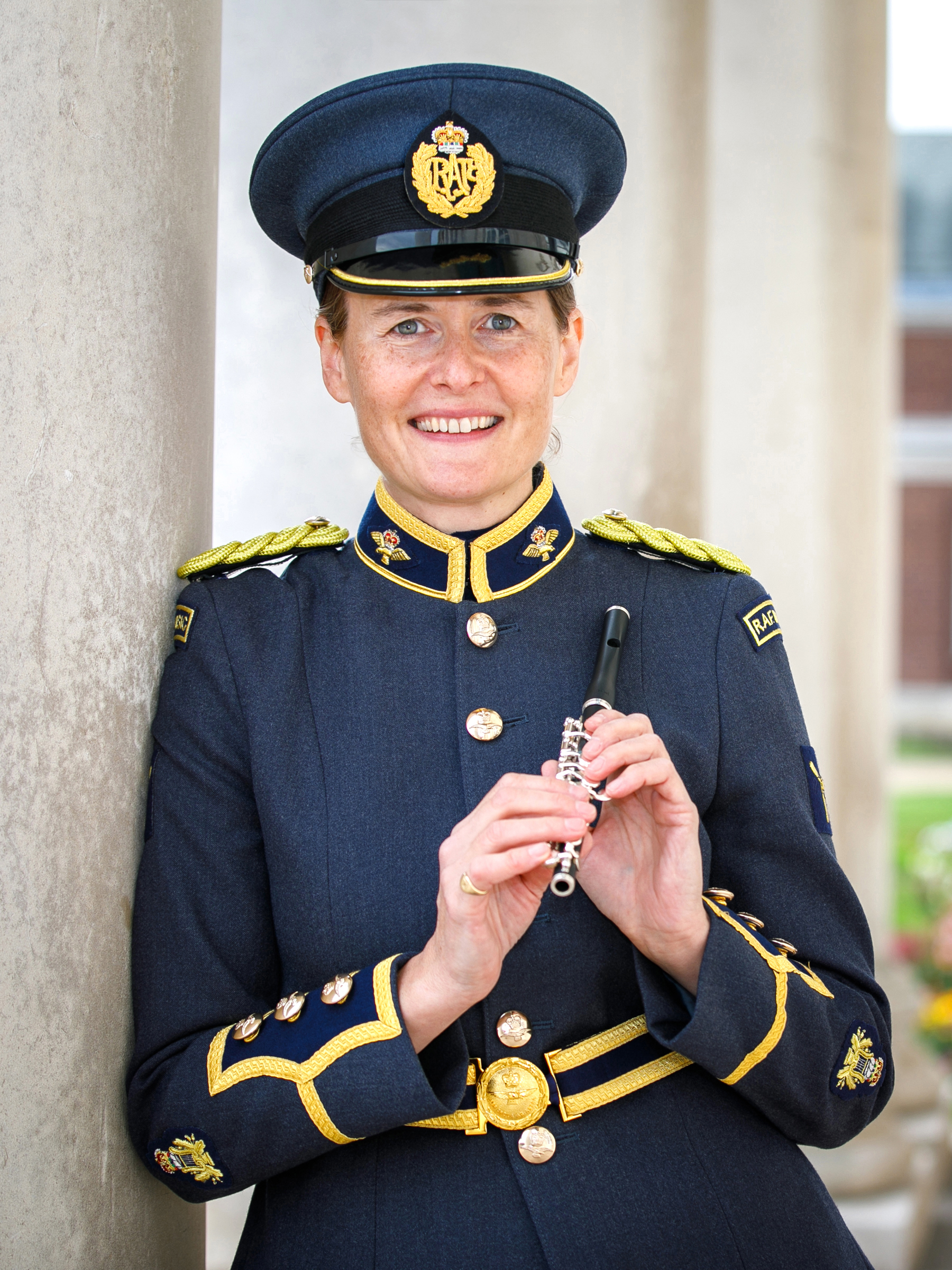
Anastasia joined the Royal Auxiliary Air Force Band in 2020 and was quickly recognised as being an exceptional flautist and all-round musician. In the relatively short period she served, she took advantage of all the opportunities afforded to her by the Band including taking part in a Changing of the Guard Ceremony at Buckingham Palace.
In February 2024, during a Band of the Royal Auxiliary Air Force training weekend, Anastasia’s family presented the inaugural award of the Anastasia Arnold Memorial Trophy.
Ana sadly passed away in February 2022 and the trophy is awarded annually, in her memory, to the RAuxAF musician who has made the greatest contribution to the Band during the training year.
Honorary Air Commodore Lord Selkirk of Douglas
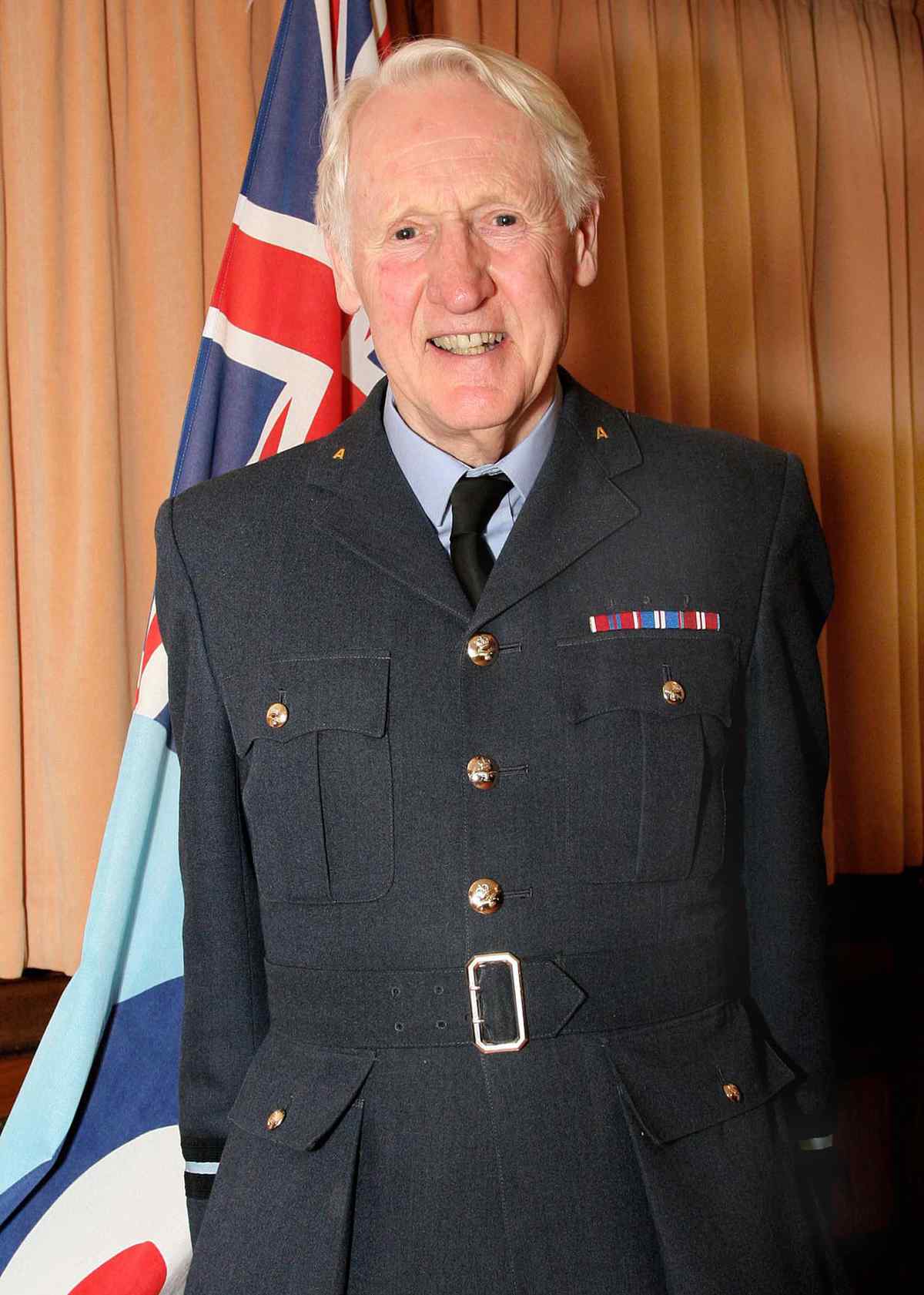
Lord James, as he was known, was appointed Honorary Air Commodore (HAC) of No 2 (City of Edinburgh) Maritime Headquarters Unit in 1995. He retained the position of HAC on the reformation of No 603 (City of Edinburgh) Squadron by special approval of Her Majesty the late Queen, who had been the the Squadron’s HAC since 1951, then as The Princess Elizabeth. On the reformation of the Squadron, Her Majesty said that she was content for Lord James ‘to continue to act on her behalf’.
With an avid interest in military history, particularly anything with an air force connection, Lord James was the author of many acclaimed books on military aviation.
Group Captain George Denholm
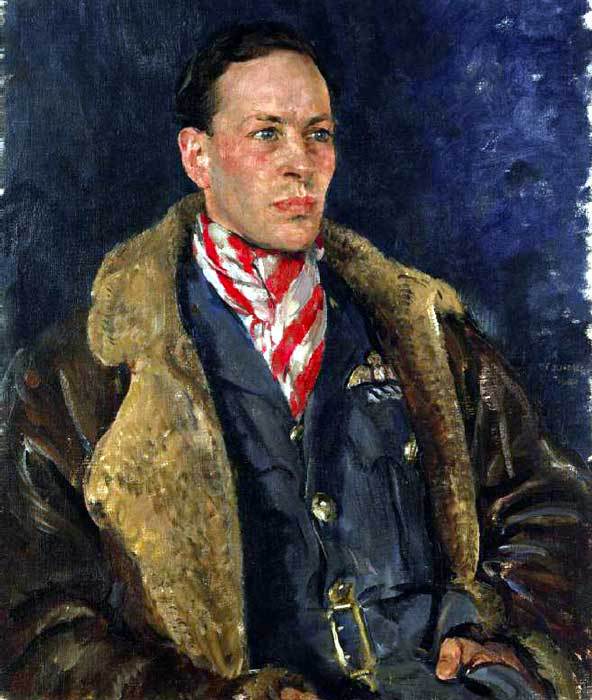
George joined the Royal Auxiliary Air Force in 1933 and commanded 603 (City of Edinburgh) Squadron throughout the Battle of Britain.
On 27th August 1940, the Squadron was deployed with its Spitfires to RAF Hornchurch, where the aircraft were immediately refuelled to take off into the thick of the conflict.
The Squadron remained at Hornchurch throughout the campaign and didn’t return to Edinburgh until after victory was secured, flying regular bomber interception sorties.
George was awarded the Distinguished Flying Cross for exceptional leadership and valour during the Battle of Britain. Towards the end of the war on 11 May 1945, and having overseen missions in Scandinavia, he accepted the capitulation of Nazi-occupied Norway from a number of high-ranking Luftwaffe Officers at a signing ceremony in East Lothian.
After the war he served in the RAF, retiring in as a Group Captain in 1947, and taking over the family business. He died in 1997.
Wing Commander Alastair Grant
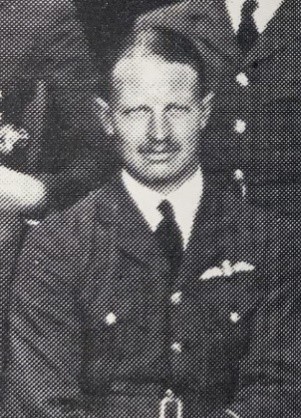
Alastair joined 602 (City of Glasgow) Squadron in 1932, learning to fly the Spitfire just before the outbreak of the Second World War.
He was part of a formation that engaged with twelve German aircraft attacking ships in the Forth Estuary on 16 October 1939. The formation shot down a number of enemy aircraft, which were the first German aircraft to be destroyed in aerial combat over the United Kingdom in the war. This action prompted the Chief of the Air Staff to send a message to the Squadron, ‘Well done; first blood to the Auxiliaries’.
In 1948, Alastair was promoted to the rank of wing commander and posted to command 3510 Fighter Control Unit, Auxiliary Air Force, a position for which he received the award of Officer of the British Empire. Alastair died in 2001.
Squadron Leader Archie McKellar
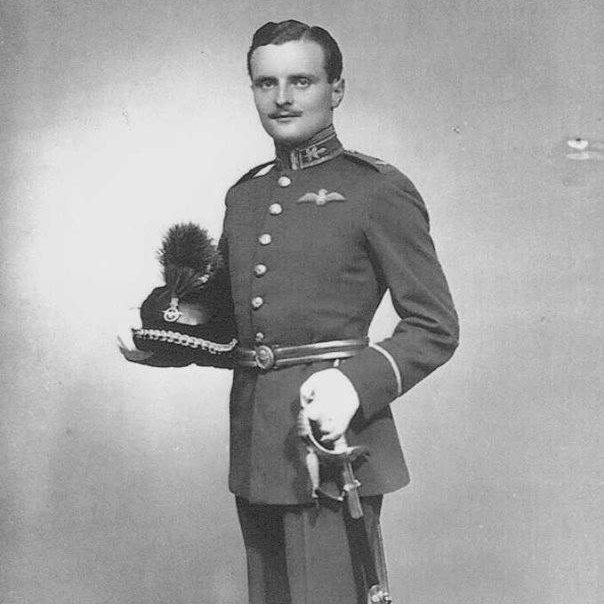
Archie was was invited to join 602 (City of Glasgow) Squadron in 1938. He converted to the newly issued Spitfire just before the outbreak of the Second World War and took part in the same formation as Wing Commander Alastair Grant had done, shooting down the first German aircraft over the United Kingdom. Archie was personally responsible for one of the kills.
Later in the Battle of Britain, he went on to shoot down no fewer than 22 German aircraft, including five in one day making him the 2nd highest scoring pilot during the campaign.
Archie subsequently commanded 605 (County of Warwick) Squadron before being shot down and killed early in the morning of 1 November 1940, hours after the Battle of Britain was declared over. He was awarded a Distinguished Service Order, Two Distinguished Flying Crosses and a Mention in Despatches.
Flight Lieutenant Carl Davis
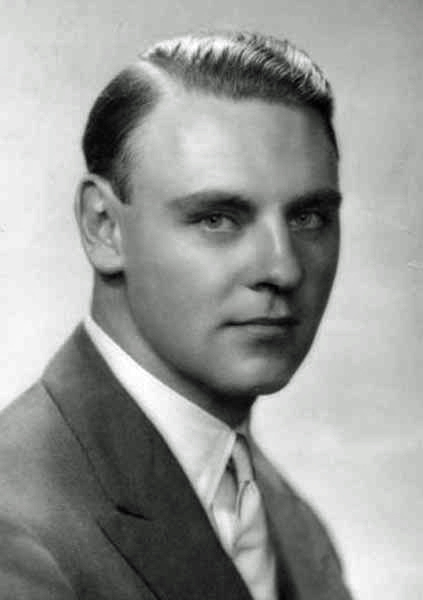
Carl Davis joined 601 (County of London) Squadron in 1936. Initially flying the Blenheim aircraft, he was part of a formation that joined up with six aircraft from 25 Squadron on a successful raid on the seaplane base at Borkum on the Friesian Islands in November 1939.
Carl converted onto the Hurricane in March 1940 and took part in the Battle of Britain. He was a very good shot destroying nine aircraft, damaging four more and sharing in others.
He was awarded the Distinguished Flying Cross on 30 August 1940 but was very sadly shot down and killed a week later.

